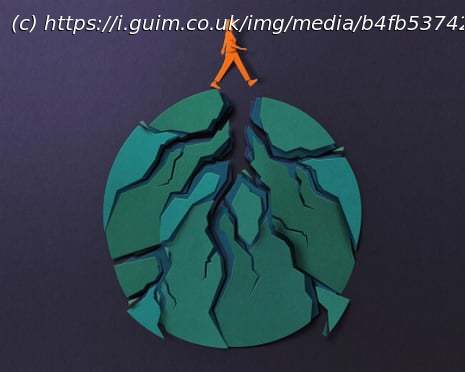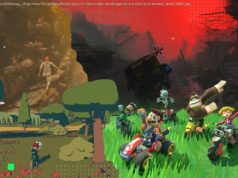From superintelligent AI to the climate and democracy, three leading thinkers
From superintelligent AI to the climate and democracy, three leading thinkers discuss how to navigate the future
What happens when an internationally bestselling historian, a Nobel peace prize-winning journalist and a former politician get together to discuss the state of the world, and where we’re heading? Yuval Noah Harari is an Israeli medieval and military historian best known for his panoramic surveys of human history, including Sapiens, Homo Deus and, most recently, Nexus: A Brief History of Information Networks from the Stone Age to AI. Maria Ressa, joint winner of the Nobel peace prize, is a Filipino and American journalist who co-founded the news website Rappler. And Rory Stewart is a British academic and former Conservative MP, writer and co-host of The Rest Is Politics podcast. Their conversation ranged over the rise of AI, the crisis in democracy and the prospect of a Trump-Putin wedding, but began by considering a question central to all of their work: how to live a good life in an increasingly fragmented and fragile world?
YNH People have been arguing about this for thousands of years. The main contribution of modern liberalism and democracy was to try to agree to disagree; that different people can have very different concepts of what a good life is, and they can still live together in the same society, agreeing on some very basic rules of conduct. And the challenge was always that people who think they have the absolute answer to what is a good life try to impose it on others, partly because, unfortunately for many ideologies, an inherent part of the good life is attempting to make everybody live it. And even more unfortunately, in many cases, it seems that it is easier to impose it on others than to do it ourselves. If we take the original crusade in medieval Christian Europe, you have all these people who can’t live a Christian life of modesty and compassion and love your neighbour, but they are able to travel thousands of kilometres to kill people and try to force them to live according to these principles. And what we are witnessing in the world right now is more of the same.
RS At the heart of that observation is this extraordinary idea, which, broadly speaking, is called liberalism. It is an idea that became very powerful, particularly by the 19th century, and found a new form after the second world war. We’re the heirs of that: it assumed things like a rules-based international order; an idea that we would agree how we behaved, state to state; it had an idea of democracy at its heart. And of course, that idea of democracy has a lot of the ingredients that Yuval is talking about, which is tolerance, human rights – how you protect the minority from the views of the majority. And there was an extraordinary period that probably lasted until the mid-2000s where it really seemed possible that this was the natural destination of humanity. And then things began to come off the rails. Now we find ourselves in a world where almost every bit of the model has entered its shadow form. So instead of focusing on democracy, we’re in a world dominated by authoritarian populism. Instead of a world of free trade, we’re in one that’s increasingly about protection and tariffs. Instead of a rules-based international order, we’re in a world of isolation: the strong do what they can, the weak must suffer what they must. And all this, of course, is then reinforced by social media and increasingly by AI.
MR The biggest question we have today is whether impunity will reign, because it’s clear from what is happening in the physical and virtual world that an international rules-based order is not working. How do you live a good life when big tech is using surveillance for profit, to manipulate us in order to keep making more money? Now we’re individually targeted by technology that can go to the cellular level of every democracy.
All five major world religions say that the battle that matters in order to live a good life is the battle inside yourself: your better self versus your worst self. Do unto others as you would have them do unto you; it’s a simple thing. But how do we maintain these values when the very way we connect with each other is corrupted?
YNH What is new in the current situation is that we now have the technology to hack human beings and manipulate the inner battle in a way that was simply impossible in the middle ages or even in the 20th century. Big corporations, and anybody wielding this new technology, can both decipher and also manipulate human desires and thoughts in a way that is unprecedented. And liberal democracy, as it was constituted in the 18th and 19th century, really doesn’t know how to deal with it.
RS There’s also the possibility that technology begins to overshadow us. If you think about civilisation, a lot of it traditionally was about these great figures, these role models, these heroes. And what is a hero? Somebody who stretches the limits of what it means to be human. We believe we are this extraordinary species who can do things in science or poetry or drama that no other species can do.






